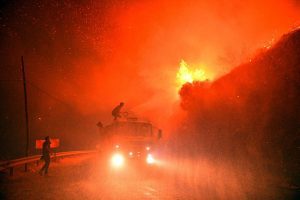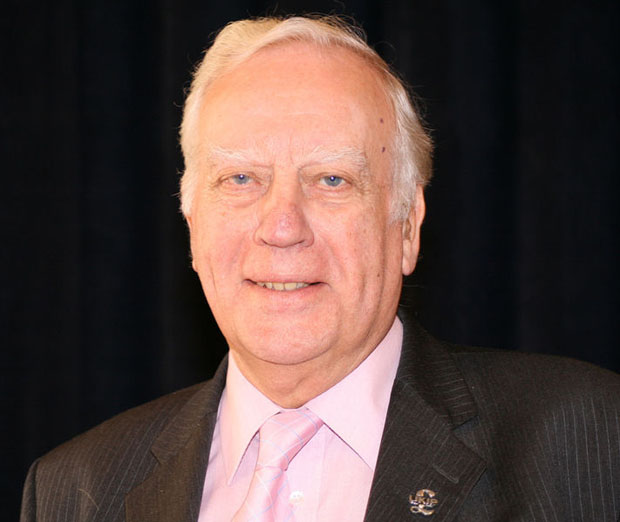29 Sep 2021 | Afghanistan, Americas, Artistic Freedom Commentary and Reports, Asia and Pacific, Australia, Burma, Cuba, Ecuador, Europe and Central Asia, Israel, Lukashenko letters, Magazine, Magazine Contents, Middle East and North Africa, Religion and Culture, Russia, Syria, Turkey, Uganda, United Kingdom, United States, Volume 50.03 Autumn 2021, Volume 50.03 Autumn 2021 Extras

The Autumn issue of Index magazine focuses on the struggle for environmental justice by indigenous campaigners. Anticipating the United Nations Climate Change Conference (COP26), in Glasgow, in November, we’ve chosen to give voice to people who are constantly ignored in these discussions.
Writer Emily Brown talks to Yvonne Weldon, the first aboriginal mayoral candidate for Sydney, who is determined to fight for a green economy. Kaya Genç investigates the conspiracy theories and threats concerning green campaigners in Turkey, while Issa Sikiti da Silva reveals the openly hostile conditions that environmental activists have been through in Uganda.
Going to South America, Beth Pitts interviews two indigenous activists in Ecuador on declining populations and which methods they’ve been adopting to save their culture against the global giants extracting their resources.
 Cover of Index on Censorship Autumn 2021 (50-3)[/caption]
Cover of Index on Censorship Autumn 2021 (50-3)[/caption]
A climate of fear, by Martin Bright: Climate change is an era-defining issue. We must be able to speak out about it.
The Index: Free expression around the world today: the inspiring voices, the people who have been imprisoned and the trends, legislation and technology which are causing concern.
Pile-ons and censorship, by Maya Forstater: Maya Forstater was at the heart of an employment tribunal with significant ramifications. Read her response the Index’s last issue which discussed her case.
The West is frightened of confronting the bully, by John Sweeney: Meet Bill Browder. The political activist and financier most hated by Putin and the Kremlin.
An impossible choice, by Ruchi Kumar: The rapid advance of Taliban forces in Afghanistan has left little to no hope for journalists.
Words under fire, by Rachael Jolley: When oppressive regimes target free speech, libraries are usually top of their lists.
Letters from Lukashenka’s prisoners, by Maria Kalesnikava, Volha Takarchuk, Aliaksandr Vasilevich and Maxim Znak: Standing up to Europe’s last dictator lands you in jail. Read the heartbreaking testimony of the detained activists.
Bad blood, by Kelly Duda: How did an Arkansas blood scandal have reverberations around the world?
Welcome to hell, by Benjamin Lynch: Yangon’s Insein prison is where Myanmar’s dissidents are locked up. One photojournalist tells us of his time there.
Cartoon, by Ben Jennings: Are balanced debates really balanced? Ask Satan.[/vc_column_text][/vc_column][/vc_row][vc_row][vc_column][vc_custom_heading text=”Special Report” font_container=”tag:h2|font_size:22|text_align:left”][/vc_column][/vc_row][vc_row][vc_column][vc_column_text]

Credit: Xinhua/Alamy Live News
It’s not easy being green, by Kaya Genç: The Turkish government is fighting environmental protests with conspiracy theories.
It’s in our nature to fight, by Beth Pitts: The indigenous people of Ecuador are fighting for their future.
Respect for tradition, by Emily Brown: Australia has a history of “selective listening” when it comes to First Nations voices. But Aboriginal campaigners stand ready to share traditional knowledge.
The write way to fight, by Liz Jensen: Extinction Rebellion’s literary wing show that words remain our primary tool for protests.
Change in the pipeline? By Bridget Byrne: Indigenous American’s water is at risk. People are responding.
The rape of Uganda, by Issa Sikiti da Silva: Uganda’s natural resources continue to be plundered.Cigar smoke and mirrors, by James Bloodworth: Cuba’s propaganda must not blight our perception of it.
Denialism is not protected speech, by Oz Katerji: Should challenging facts be protected speech?
Permissible weapons, by Peter Hitchens: Peter Hitchens responds to Nerma Jelacic on her claims for disinformation in Syria.
No winners in Israel’s Ice Cream War, by Jo-Ann Mort: Is the boycott against Israel achieving anything?
Better out than in? By Mark Glanville: Can the ancient Euripides play The Bacchae explain hooliganism on the terraces?
Russia’s Greatest Export: Hostility to the free press, by Mikhail Khordokovsky: A billionaire exile tells us how Russia leads the way in the tactics employed to silence journalists.
Remembering Peter R de Vries, by Frederike Geeerdink: Read about the Dutch journalist gunned down for doing his job.
A right royal minefield, by John Lloyd: Whenever one of the Royal Family are interviewed, it seems to cause more problems.
A bulletin of frustration, by Ruth Smeeth: Climate change affects us all and we must fight for the voices being silenced by it. Credit: Gregory Maassen/Alamy[/caption]
Credit: Gregory Maassen/Alamy[/caption]
The man who blew up America, by David Grundy: Poet, playwright, activist and critic Amiri Baraka remains a controversial figure seven years after his death.
Suffering in silence, by Benjamin Lynch and Dr Parwana Fayyaz The award-winning poetry that reminds us of the values of free thought and how crucial it is for Afghan women.
Heart and Sole, by Mark Frary and Katja Oskamp: A fascinating extract gives us an insight into the bland lives of some of those who did not welcome the fall of the Berlin Wall.
Secret Agenda, by Martin Bright: Reforms to the UK’s Official Secret Act could create a chilling effect for journalists reporting on information in the public interest.
2 Oct 2020 | Opinion, Ruth's blog
[vc_row][vc_column][vc_single_image image=”110001″ img_size=”full”][vc_column_text]There is no right not to be offended.
There is no right to cause harm and incite hate and violence.
These are not contradictory statements. In fact I believe that they are the founding pillars of how we should exercise our basic right to free speech in a democracy, but all too often we collectively seem to forget that.
And we ignore these basic principles at our peril; after all, none of us seek a bland public space. We thrive on debate and challenge, on new thinking and research; it drives social change, ensures progress and most importantly holds decision-makers to account.
Slavery, criminalisation of homosexuality and denying women the vote were also once legal until someone stood up and said no. These people started, at times, incredibly difficult and brave debates, launched inspiring campaigns and took people on a journey which changed hearts and minds and, of course, the law.
We can and should be able to do all of that without crossing a line into hate, without inspiring fear and without descending into violence and threat.
None of this should be controversial in a rational world; unfortunately rationality seems to be a rare commodity at the moment.
The concept of free speech has been a dominant feature in our political discourse over the last year. There has been a lot written about cancel culture, current and impending culture wars and the need to manage, if not shut down all together, debate.
Much of this has been driven by people who seek to raise their own profile at the expense of good and proper debate on serious issues that matter. This isn’t healthy for us as a society and honestly it is stifling our national conversation and leaving a political vacuum for those on the fringe to fill.
The world is facing a public health emergency and a global recession. There are serious injustices happening across the globe, both in democracies and repressive regimes. Yet we are seeing new and empowering political movements emerging demanding real equality, genuine citizenship and action on climate change across the planet.
All of these issues are going to inspire debate as we seek answers to some of the biggest questions our societies have ever faced.
Do we demand an end to globalisation because of the effects of worldwide trade on the environment?
Do we fight for public health measures as the expense of our civil liberties?
In the midst of a global recession is trade with China more important than human rights?
Honestly, in order to find the answers we need to listen to each other and not shut down the debate.
We need to hear from those being persecuted and those being marginalised. We need to listen to those people on the frontline of each issue and most importantly we need to respect each others position and opinion. In short we need to value not just our own right to free expression but other people’s too.
Index was established to be a voice for the persecuted, to provide a platform to those who couldn’t have their work published elsewhere and to shine a spotlight on areas where peoples voices were being silenced. I’m proud of that heritage and as our public space becomes increasingly hostile, I can promise you that Index will fight to ensure that we always have free and open debate[/vc_column_text][/vc_column][/vc_row][vc_row][vc_column][three_column_post title=”You might also like to read” category_id=”13527″][/vc_column][/vc_row]
16 Jan 2014 | News and features, Politics and Society, United Kingdom

Derek Clark MEP (Image: Euro Realist Newsletter/Wikimedia Commons)
The UK Independence Party has promised it will ban the teaching of climate change in schools, if elected in May next year.
The party’s 2010 manifesto included a pledge to ban Al Gore’s Oscar-winning global warming documentary An Inconvenient Truth from schools.
But this week UKIP Education spokesman MEP Derek Clark has said the party will go even further. Clark told Index on Censorship:
We will still ban Al Gore’s video for use in schools if I’ve got anything to do with it. I will not have much opposition within the party. It is, of course, not just this video which needs banning; all teaching of global warming being caused in any way by carbon dioxide emissions must also be banned. It just is not happening.”
Dr Nick Eyre, Jackson Senior Research Fellow in Energy at the ECI and Oriel College Oxford and Co-Director of the UK Energy Research Centre, said of the proposal: “It is anti-scientific nonsense – as well as a worryingly repressive approach to education. The very strong link between climate change and anthropogenic carbon dioxide emissions is overwhelmingly accepted by the global scientific community, and has been for at least 25 years.”
A recent IPCC report shows that scientists believe with 95% certainty that humans are the “dominant cause” of global warming. A 2013 study by UK Energy Research Centre, however, showed that 46% believe that climate change is ‘partly caused by human activity’, 22% believe that climate change is ‘mainly caused by human activity’ and another 6% believe that climate change is ‘entirely caused by human activity’. In total 74% of those surveyed believed that human activity is responsible for climate change.
This article was posted on 15 Jan 2014 at indexoncensorship.org
An earlier version of this article stated: “95% of scientists believe that humans are the ‘dominate cause’ of global warming.” It has been edited to: “scientists’ believe with 95% certainty that humans are the ‘dominate cause’ of global warming.
This article was amended to include the total number of people in the UK Energy Research Centre study who believe that human activity is responsible for climate change.
3 Jan 2014 | Digital Freedom, News and features, United States

San Fransisco based Reddit.com made headlines when it allegedly banned climate change deniers from posting on the site.
UK-based freedom of speech advocate Brendan O’Neill, editor of Spiked magazine, claimed it had “shredded its own reputation” in a piece for The Telegraph, while James Delingpole, a right-wing commentator for The Spectator delivered a hot-blooded attack on the policy via Fox News website – “The greenies — and their many useful idiots in the liberal media — are terrified of open debate on climate-change because the real world evidence long ago parted company with their scientifically threadbare theory.”
Reddit is a huge online links directory and lively discussion board, with a reputation for scale, wit, lack of censorship and a strong sense of community. Over eighty million monthly unique visitors, two hundred and sixty million comments to date and a presence in one hundred and eighty countries are some of the stats that led Conde Nast to buy the company a year after it was launched in 2005. Last year, analysts valued it at over $200 million dollars. It’s no Facebook or Twitter in terms of publicity attracted, but it gets more traffic than CNN, and the Guardian.com’s monthly readership could fit into Reddit’s three times over.
It’s the famed lack of censorship that has lead opinion writers on both side of the Atlantic to point out this new policy on climate change denial.
For those who haven’t visited, the site is divided up into sub-reddits–links and discussions, which are classified according to themes, and run by unpaid volunteers.
“TIL,” shorthand for “Today I Learned,” offers obscure trivia and little known facts. “foreignpolicy” offers links and discussion on international relations, defence and diplomacy. “foodforthought” collates links to thought-provoking essays. There are subreddits for jokes, celebrity gossip, memes and funny videos – for agony aunts and video gaming.
In fact, rather than reddit.com having banned climate change skeptics, it’s the moderators of the “/r/science” reddit who have instigated the ban. Run by volunteers, it collects links about new research and scientific articles.
“/r/science is not the beginning or the end of internet discussion”, defends Carl Ellstrom from Sweden – a reddit user, scientist and moderator of the science subreddit. “Users who are banned from /r/science are not banned from reddit, and can discuss their opinions in other subreddits.”
While it’s not the beginning or the end, /r/science still attracts millions of visitors each month. So the decision to ban climate change scepticism is of note.
Typical of their profession–other moderators backed up the decision by citing research–97% of climate scientists agree that man is changing the planet, according to a report from the respected Institute of Physics.
The move principally revolved around aggressive and repeated comments, which a small group of malicious users were posting on every article or piece of research concerned with climate change. Their allegations generally focused on conspiracy theories, didn’t address the article with constructive, focused criticism, were repetitive and, critically, had a disproportionate silencing effect on any discussion.
“These problematic users were not the common ‘internet trolls’ looking to have a little fun upsetting people,” explains Nathan Allen, a PhD chemist with a major chemical company and reddit moderator who wrote for The Guardian.
“These people were true believers, blind to the fact that their arguments were hopelessly flawed, the result of cherry-picked data and conspiratorial thinking. They had no idea that the smart-sounding talking points from their preferred climate blog were, even to a casual climate science observer, plainly wrong. They were completely enamoured by the emotionally charged and rhetoric-based arguments of pundits on talk radio and Fox News.”
Expanding on that last point Allen says the same comparison could be made with the climate change denial lobby in general, and their disproportionate influence on the press.
“Like our commenters, professional climate change deniers have an outsized influence in the media and the public. And like our commenters, their rejection of climate science is not based on an accurate understanding of the science but on political preferences and personality.”
He ends his piece with a deliberate challenge to the editors of the world’s largest websites
“If a half-dozen volunteers can keep a page with more than 4 million users from being a microphone for the antiscientific, is it too much to ask for newspapers to police their own editorial pages as proficiently?”
If Allen’s suggestion was ever to be noticed and accepted by editors–he ramifications for freedom of speech and media censorship would be radical. Editors might be forced to ignore lobbying from certain spheres of belief, or might miss out on important stories.
But UK research published earlier in the year, shows the disproportionate effect on distorting the truth that having a free and open press creates.
On average, Brits think teenage pregnancies are twenty five times higher than official estimates. The public think 31% of the population are immigrants–the reality is closer to ten percent. Welfare benefit fraud is thought to be 34 times higher than it actually is.
All of the misconceptions covered by IPSOS Mori, the polling company that undertook the research, have been central to political party manifestos and been aggressively pushed by their PR companies.
Or that journalists are too readily being made tools of political parties who want to get elected, who want the issues that they care most about continually in the press, hotly discussed and “on the agenda.” Perhaps we, as journalists, need to remain ever vigilant to the briefing of misinformation and our responsibility to the truth.
This article was published on 3 Jan 2014 at indexoncensorship.org

 Cover of Index on Censorship Autumn 2021 (50-3)[/caption]
Cover of Index on Censorship Autumn 2021 (50-3)[/caption]
 Credit: Gregory Maassen/Alamy[/caption]
Credit: Gregory Maassen/Alamy[/caption]

